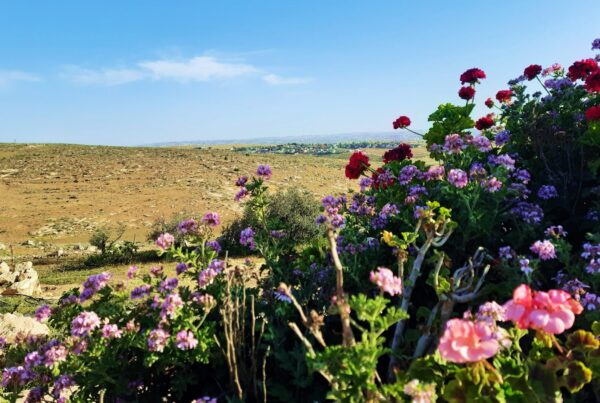by Marta Musić
The re-authorisation of a 300 km long highway cutting through the TIPNIS is part of an extractivist-development model that the MAS administration of Evo Morales has been pursuing since the beginning of its mandate, while paradoxically denouncing capitalism and its disastrous ecological consequences. Indigenous and environmental social movements are staging protests across the country, but wider domestic and international mobilization is urgently needed.

An activist protesting against the highway construction. (Source: The Guardian, 2017)
Two months ago, the Bolivian government of Evo Morales, leader of the party Movimiento al Socialismo (Movement towards Socialism, MAS), re-authorised the construction of a 300 km long highway that would cut through the protected Isiboro-Sécure Indigenous Territory and National Park (TIPNIS) connecting the central department of Cochabamba with the northern department of Beni. This mega-project is part of the broader Initiative for the Integration of Regional Infrastructure in South America (IIRSA), a $69 billion worth program of 514 infrastructural investments in transport, energy and communications, said to foster ‘South-South’ cooperation through the construction of a trade corridor from the North-East to the South-West of South America.

The 300 km long highway cutting through the TIPNIS. (Source: Pagina Siete)
Local indigenous communities have been opposing the construction of this highway since it was first proposed in 2008. The TIPNIS gained international visibility in 2011, when the indigenous people marching in protest for 65 days to La Paz were brutally repressed by the police; an act that left sixty people injured and three hundred peaceful protesters detained. The construction of the highway was put to a halt after the international wave of indignation was followed by pressures exercised on the government both nationally and internationally. However, the new law passed by the MAS last August nullifies the protection won after the 2011 National Indigenous March.

Bolivia´s indigenous movements march in defense of TIPNIS. (Credit: Communications Commission of the march. Source: Bolivia Diary)
The TIPNIS is not an isolated case; it is part of an extractivist-development model that the MAS administration has been pursuing since the beginning of its mandate, while fervently – and paradoxically – denouncing capitalism and its disastrous ecological consequences. Propelled into power by an exceptional wave of anti-neoliberal, leftist-indigenous social movements in 2006, the MAS pledged to shift gradually from an economic system dependent on natural resources to a ‘post-extractivist’ model based on communitarian socialism.
However, a comparison of the state’s policy promises and policy record paired with an analysis of its contradictory discourse points to extremely worrying contradictions with regards to the environment and the livelihood of rural communities. Indeed, an analysis of the structure of Bolivia’s economy under the MAS administration actually shows an intensification of extractivism and the aggravation of the economic dependency on the exports of natural resources. Indeed, according to the Economic Commission for Latin America and the Caribbean (ECLAC), the share of primary commodities as part of total exports went from 86.7% in 2004 to 95.5% in 2011. The expansion of the extractivist frontier has also been consistently promoted by the MAS government by opening up national parks such as the TIPNIS to fossil fuel extraction and infrastructure projects, and encouraging new sectors of extraction like new iron and lithium mining.
The new Constitution of 2009 was widely appraised nationally and internationally as it recognized the integrity of indigenous territory (art. 352) and guaranteed local communities the right to free, informed consultation prior to any extractivist project that requires their consent (art. 403.1). The Law of Mother Earth (2010), or the world’s first law granting Nature equal rights as humans, strongly iterates the right not to be affected by mega-infrastructure and development projects that disrupt the balance of ecosystems and local resident communities. Nevertheless, considering the expansion of extractivism throughout the country, the proliferation and intensification of socio-environmental conflicts and the steamrolling of rights to free, prior, informed consultation of local communities, these pieces of legislation seem to be more of a declaration of principles than a binding legal instrument.
An interesting topic of investigation concerns the ability of the MAS to stay in power since 2006 – i.e. for three consecutive mandates – when the government is not only failing to uphold its promises, but is doing the exact opposite.
One explanation can be found in the changing class composition of the MAS and in the shift from a reliance on leftist and indigenous social movements to the establishment of strategic alliances with middle class and urban intelligentsia, powerful landowning classes and transnational investors. The election of Evo Morales was followed by the consolidation of a new configuration of power consisting of domestic agro-industrialist elites from Eastern lowlands, transnational capital of the hydrocarbon industry, mining and oil conglomerates as well as a new indigenous petty bourgeoisie benefiting from extractive industries. Meanwhile, opposition forces failed to effectively challenge the government, as prominent members of social movements and leftist militants were either expelled from the government or co-opted through targeted redistribution, clientelist arrangements and political nepotism. As mentioned previously, the government has also been managing socio-environmental tensions through the use of coercion and repression of those protesting against extractivist projects.
The State has also made ample use of a contradictory discourse, oscillating between ‘saving Mother Earth’ from the clutches of capitalism and legitimizing extractivism for national development imperatives. A perfect example of such schizophrenic discourse is the use of the indigenous concept of Vivir Bien, presented as an alternative to current models of capitalist development which draws on indigenous ‘cosmovisions’ and is based on living in harmony with Nature and other human beings according to principles of solidarity and reciprocity.
It is interesting to note that Vivir Bien was not only used by the State as a smoke screen, but also as a tool to legitimize extractivism as a necessary, temporary form of integral development. In other words, extractivism is presented as a necessity that will facilitate the path towards the achievement of communitarian socialism and Vivir Bien (for a more extensive study of the contradictions of Vivir Bien, see here). In the same manner, extractivism is also legitimized as a necessary tool for poverty alleviation and is presented as the only solution for the country’s socio-economic development. By doing so, the State is able to demonize the opposition in a Manichean fashion by portraying those against extractivism as enemies of the country itself, while completely overlooking the destructive and imperial character of extractive industries.

The TIPNIS Park. (Source: Bolivia en tus manos, 2016)
Many fear that the construction of the highway through the TIPNIS will pave the way for mining, gas and oil exploration, and deforestation. Indeed, according to the Bolivian Institute for Strategic Research (PIEB), constructing the road cutting through the TIPNIS could potentially lead to a deforestation of 64% of the park within 15 years. The presidents of the Sub-Central TIPNIS also voiced their extreme concern at the International Andean-Amazonian Forum of Rural Development on October 18th and 19th 2017, and called for the continuous struggle for the defence of the Amazonian forest.
While indigenous and environmental social movements and activists have responded to the government’s actions by staging emergency protests across the country, scholars, journalists and environmental organisations domestically and internationally should also keep denouncing the actions of the MAS and exposing the contradictions of its administration to halt projects that jeopardise the environment and the livelihoods of local communities. Given the context of a continent-wide expansion of extractivism, the ‘re-primarization’ of Latin American economies and the pressing issue of climate change, the combined efforts of all these actors are not only crucial; they are urgently needed.
* Marta Musić is a Serbian and French activist, freelance journalist and photographer. She holds an MSc in Development Studies from SOAS University of London and is currently preparing a PhD on the Latin American Left, neo-extractivism and social movements.






Reblogged this on Political Ecology Network.